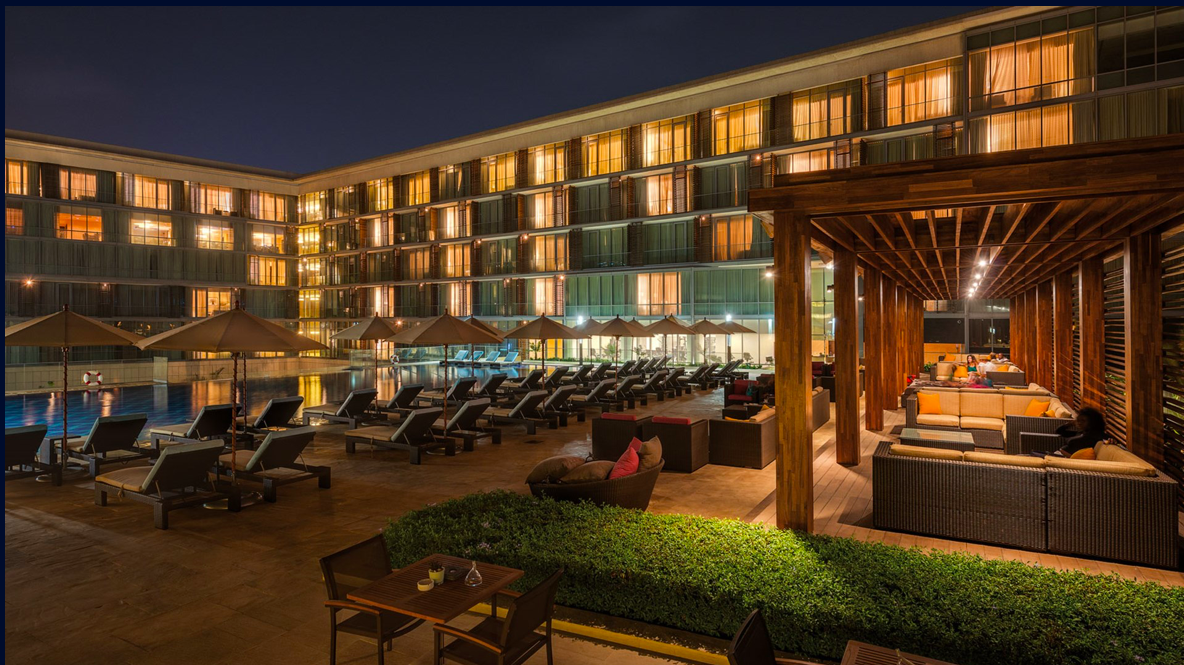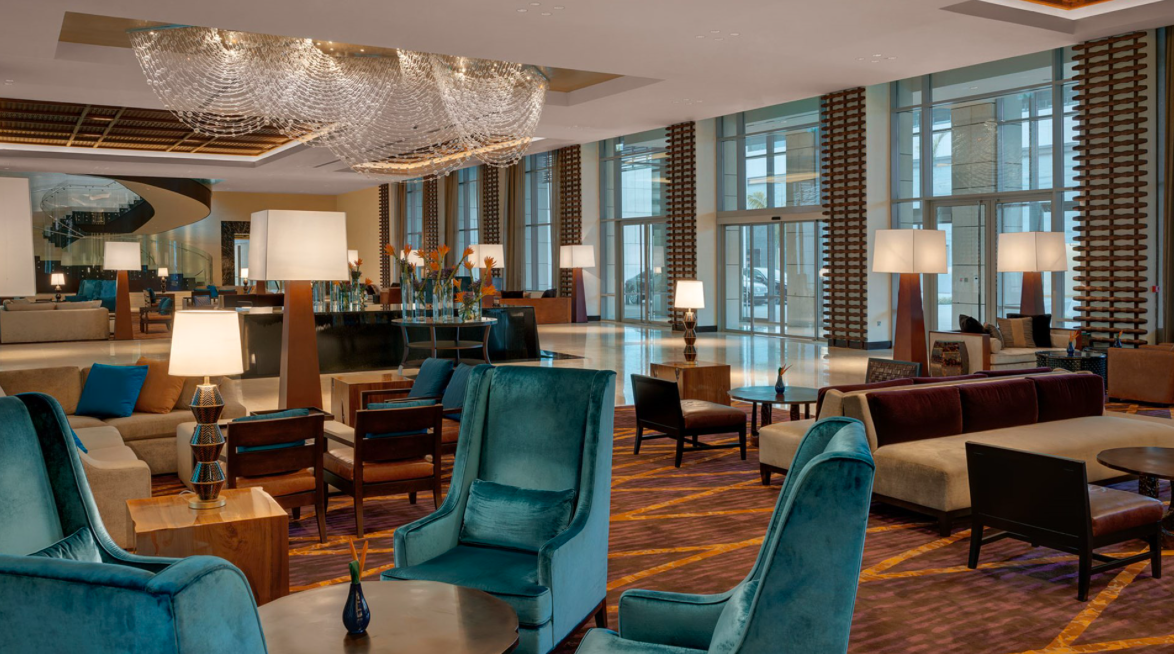Ghana raises Africa’s leisure tourism bar

“Continued economic growth in many African countries is driving greater interest in the continent from a tourism perspective but it’s interesting to see that Ghana, in particular, is proving increasingly attractive as a leisure tourism destination,” says Wayne Troughton, CEO of specialist global hospitality and tourism consultancy HTI Consulting.
“In many ways this is not surprising,” he says, “particularly considering Ghana’s natural beauty and unspoiled coastline, its cultural and historical heritage as well as it’s relative political safety under the new government elected in December 2016,” he states. “But, in the past, these assets remained largely underexplored by foreign visitors, many of whom visited Ghana purely to investigate business opportunities in what still remains one of the fastest growing economies in the world.”
“The difference now, however, is that, with a number of promotional initiatives underway, the country’s new administration is making a dedicated push to transform Ghana into a leisure tourism destination,” explains Troughton. “A veritable slew of ongoing projects, such as the newly built terminal 3 at the Kotoka International Airport and significant road upgrades, are also expected to generate a further boost.”
Recently too, The World Bank approved a facility of USD 40 million to the Ghana Tourism Development Project. The project will enhance the tourism sector’s offerings in targeted destinations; diversify its impact and help increase the contribution of the tourism sector to the Ghanaian economy. The project will also support the aviation sector as well as micro, small, and medium enterprises, which will benefit from improved access to markets, better public goods provision in the targeted tourism destinations, and better skilled workers.
This is good news for the region, and Ghana in particular, given its political stability and friendly people. Although not exposed to any major incidents similar to attacks in neighbouring Burkina Faso and Côte d’Ivoire in 2016, Ghana’s security measures have been tightened.
“The ability to attract more private capital and ensure sustained spending on infrastructure remains a priority. Addressing prices constitutes another priority,” explains Troughton, “allowing Ghana to become a more affordable destination compared to its African peers.”

“According to the research recently undertaken by HTI Consulting in Ghana, where focus was placed on understanding the levels of demand for leisure hotels in the country, Ghana has yet to make strong in-roads into the international leisure market, however, demand from local, expatriate and regional leisure tourists is growing, particularly as economic conditions in West Africa improve,” he says.
“Though tourism data for Ghana remains largely outdated,” explains Troughton, “it is estimated that approximately 20 per cent of the almost one million visitors to Ghana, travel for purposes of leisure,” he says. “A large proportion of such visitors are sourced from neighbouring Nigeria, largely due to the fact that Nigeria has limited offerings in terms of leisure resorts and Ghana offers an attractive, nearby alternative for middle to upper income Nigerians wanting to holiday beyond their borders, “ he explains. “Accra also represents a nice weekend break for Nigerians seeking a break from the hustle and bustle of larger cities such as Lagos, and resort- style developments on the beach in or close to the capital are preferred,” he says. “Nigerians therefore represent the largest source of foreign room night demand.”
According to the World Travel and Tourism Council (WTTCC) leisure travel spending (inbound and domestic) generated 66.5 per cent of direct Travel & Tourism GDP in 2017 (GHC6, 854.3mn) compared with 33.5 per cent for business travel spending (GHC3, 455.2mn). Leisure travel spending is expected to grow by 6.1% in 2018 to GHC7, 272.1mn, and rise by 4.7 per cent pa to GHC11, 486.8mn in 2028. Business travel spending is expected to grow by 2.3 per cent in 2018 to GHC3, 535.9mn, and rise by 2.6 per cent pa to GHC4, 569.6mn in 2028.
“The potential for expanding leisure tourism is significant,” states Troughton. “There’s been an increase in quality hotel supply in recent years, driven by the arrival of a number of international hotel chains such as the Kempinski-branded, five-star Gold Coast City hotel and the Accra Marriott Hotel, which followed on the heels of other international entrants such as Mövenpick, Holiday Inn and Golden Tulip.”
Additionally a Ramada property is currently operational in the Coco Beach area, whilst a five star resort property is expected to be developed approximately 90 minutes from Accra within the short to medium term.” A Hilton is currently under development in Ada Foah, whilst recently too the Marriott Group announced the scheduled opening of Protea Hotel by Marriott Accra, Kotoka Airport, the brand’s second hotel in Ghana and the first Protea Hotel by Marriott in the capital city of Accra.
“Destinations preferred included Ada Foah (designated a tourism enclave with area earmarked for big tourism projects in the near future) and the Volta Region. The resorts are approximately two hours drive from Accra, the gateway to the country, and offer a diversity of entertainment including beaches, beach activities, swimming pools, kids clubs, tennis courts. In addition to the above, another popular destination is Labadi Beach in Accra itself.”
“Research has shown that occupancies of these resorts is only at an approximate 60 per cent mark and greater investment in resort infrastructure, that offers international standards and service, is a key requirement for future growth from foreign markets,” states Troughton. “West Africa offers good proximity to Europe and with the right product investment, infrastructure development and marketing, could attract high levels of demand, particularly over the European winter periods.
Ghana is currently leveraging itself as ‘The Centre of the World’ according to Tourism, Arts and Culture Minister, Mrs. Catherine Abelema Afeku who says that renewed attention had been directed to the tourism sector through partnership, aggressive marketing, as well as inter-ministerial committees to ensure that all pillars were raised for the development of the sector.
“Ghana looks fast set to harness the opportunities presented by the country’s renewed focus on tourism and, as resort, entertainment, road and air infrastructure continues to improve, increased leisure demand for Ghana looks set to become a promising and tangible reality,” says Troughton.




